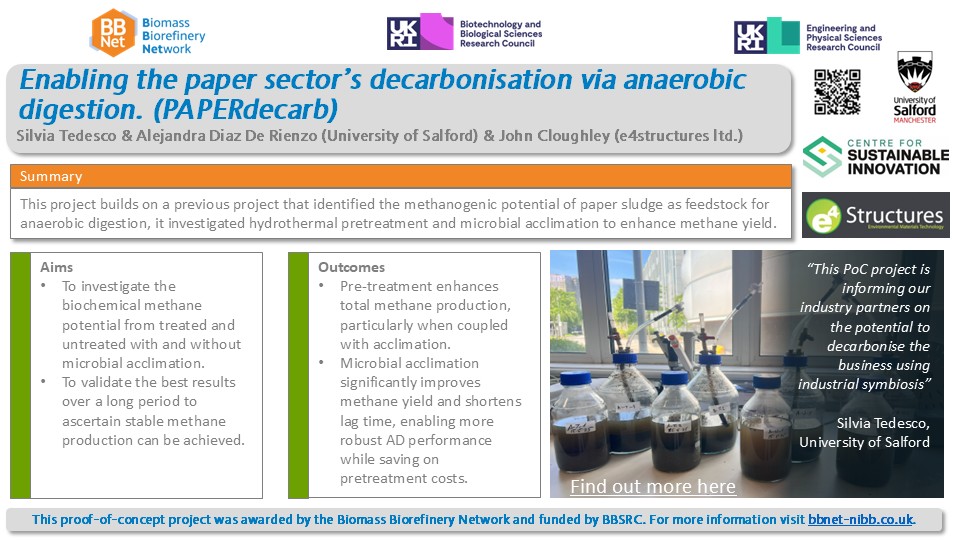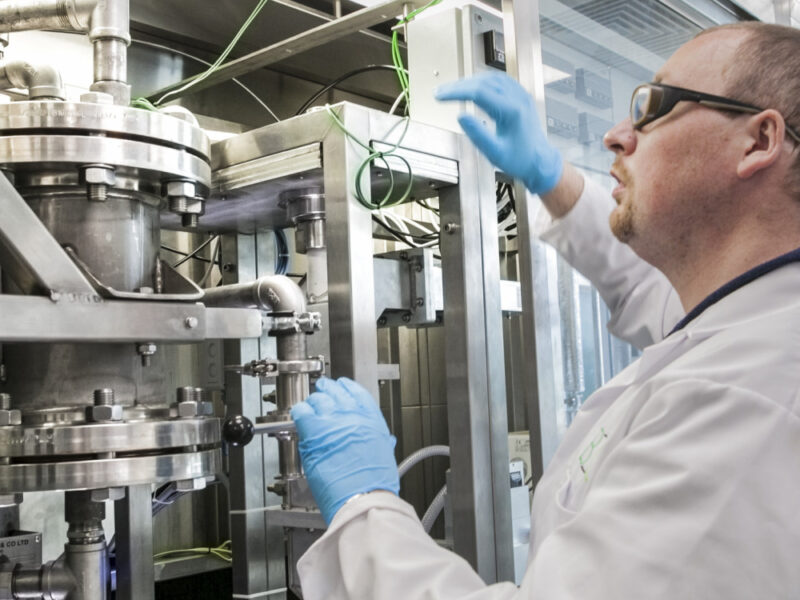Enabling the paper sector’s decarbonisation via anaerobic digestion and industrial symbiosis. (PAPERdecarb)

- Project lead
- Silvia Tedesco
- Institute
- Salford University
Summary:
According to national statistics by BEIS (2020 Annual report ‘UK Energy in Brief’), natural gas is still the major contributor to the UK’s primary energy consumption, which has risen considerably in the last 30 years, with a current inland import dependency marker at ~50%. The paper and pulp industry is one of the national key sectors that is heavily reliant on burning natural gas (8.7 TWh in 2019) to meet the heat requirements for internal drying processes, which is currently associated with ~0.6 tCO2 equivalent emissions per tonne of recovered paper (a total of approximately 2.2 million tCO2 per annum). As the industry is energy intensive, the Government has developed a strategy and a 2050 action plan to support the sector’s decarbonisation for a greener future, which includes the utilisation of renewable energy sources and added value creation for byproduct waste streams materials, which fits an integrated biorefinery and resource efficiency vision.
This research fully aligns with such strategy/vision, particularly BBSRC and EPSRC’s Bioenergy theme (cross-council) and UKRI’s Circular economy and Energy and decarbonisation themes. It takes on the challenge of reducing the typical mill’s waste (paper sludge) by converting it to renewable gas (biogas) using biological degradation for the generation of low carbon heat and electricity and it subsequently evaluates the degraded residues for recycling into greener cladding panels for buildings. The project is relevant to the Industrial Biotechnology scope as it focusses on fermentation of paper-based byproduct resources and primarily exploits microorganisms for their conversion into renewable gas.
This project builds on a previous project that identified the methanogenic potential of paper sludge as feedstock for anaerobic digestion, it investigated hydrothermal pretreatment and microbial acclimation to enhance methane yield.
Aims:
- To investigate the biochemical methane potential from treated and untreated with and without microbial acclimation
- To validate the best results over a long period to ascertain stable methane production can be achieved.
Outcomes:
- Pre-treatment enhances total methane production, particularly when coupled with acclimation.
- Microbial acclimation significantly improves methane yield and shortens lag time, enabling more robust AD performance while saving on pretreatment costs
Impact:
This PoC project is informing our industry partners on the potential to decarbonise the business using industrial symbiosis.
Academic partners: Silvia Tedesco, Salford University
Industrial partners: Steven Taylor, (a northern UK paper manufacturer) and John Cloughley, E4structures ltd.




